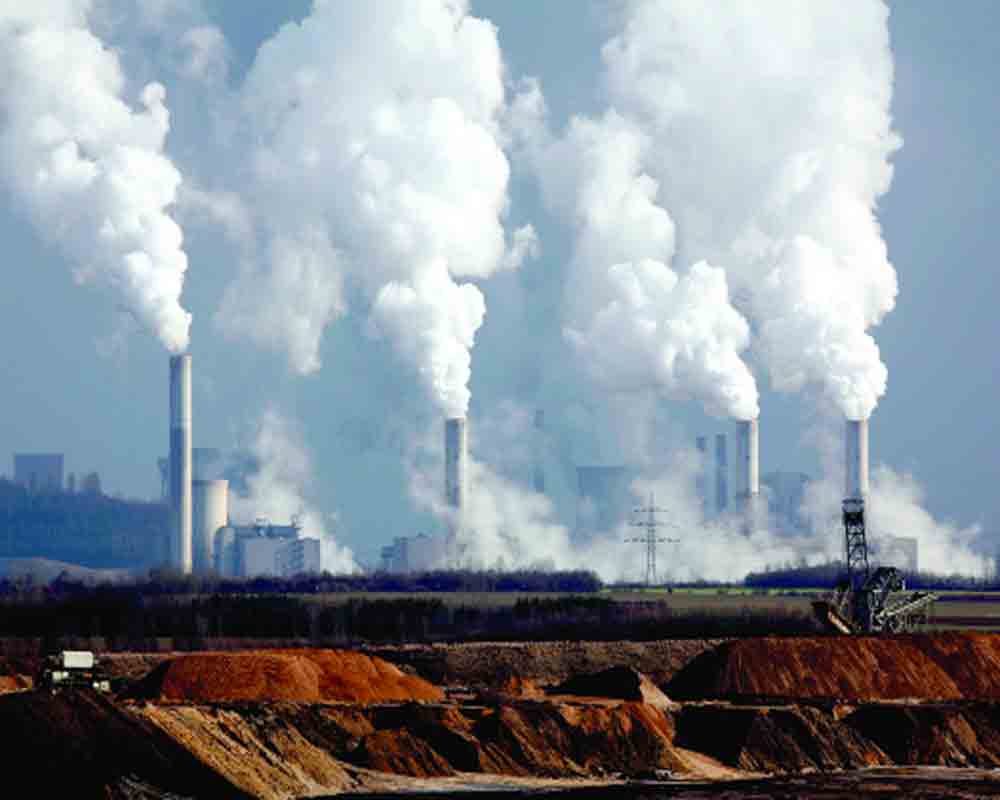With the planet facing the climate crisis, it's time we re-evaluate our motivations towards development and shun anything detrimental to the environment
Alan Shepherd, the American astronaut famously said, “If somebody had said before the flight “Are you going to get carried away looking at the earth from the moon?“ I would have said, no; no way. But yet when I first looked back at the earth standing on the Moon, I cried.”.This profound expression reminds us of the bond we share with our planet as the tapestry of life unfolds itself with every breath we take, the every step we tread on its soil doubt, we have all the responsibility to preserve and nourish its magnificence for the generations to come and thrive on it. So when climate change poses existential jeopardy transcending geographies, it makes one question, if the moral construct of the nation-state order in the contemporary world, the philosophical rootings of its political systems, the ideas of rights, liberties and justice which form the cornerstone of world’s constitutions, the principles of economic theory adopted for modern policy-making; is robust and persuasive enough to generate a unified response from humanity.
A political thought for a warmer planet: The foundations of modern political thought, forged during the Enlightenment and afterwards, were shaped by influential figures such as Thomas Hobbes, John Locke, Rousseau, Adam Smith, John Stuart Mill, John Rawls and others. The ideas of rights, liberty and justice which aspired to nurture human lives were premised upon the assumption that by and large ethical conduct; which avoids harming others essentially forms the bedrock of our social systems. The utilitarian perspective which emphasised maximising the greatest good for all as an end goal; underwent a refinement with the acknowledgement of fairness of means as well. While these ideas have contributed immensely to shaping modern political theory; they are primarily human-centric and struggle to account for the well-being or interests of non-human entities, furthermore are also found lacking in elaborating humanity's relationship with its environment. The political philosophy for a global system grappling with climate change must have a framework where utility is defined in a broader sense, inclusive of impacts on both animate and inanimate human surroundings. The right to life which is a key instrument in the majority of the world’s constitutions, requires to be recalibrated to include the threats due to emissions and a global legal framework is the need of the hour to ensure equity and justice for all affected by climate change.
Are emissions an externality?: Externality is a concept in economics that refers to the unintended side effects or consequences of an activity that affect third parties who did not choose to be involved in that activity. Also, an externality does not get reflected in the cost of the goods or services involved. The climate impact of consumption of goods and services must be accounted for climate change mitigation. A robust system for pricing carbon is necessary and till such time such a mechanism matures, initiation of the emissions labelling of items would send the right signals.
The invisible hand needs a nudge: Free markets are lauded for their ability to self-regulate, which Adam Smith referred to as the invisible hand, where, the individuals, in the pursuit of maximising their self-interest bring about the overall well-being of the society as well. Smith’s proposition however is dependent on the moral foundations of individuals involved in the market play. The subprime crisis was rather a recent demonstration that beyond the invisible hand, government intervention is necessary at times. Also, the timing of the action is crucial. The world is chasing time-bound targets to a net zero. Governments need to intervene to create market mechanisms conducive to climate action as if left to their own, markets may take time to respond, which an already hotter world can not afford. We must act before it's too late, as John Maynard Keynes famously said “in the long run,we all are dead” he advocated for government spending in the times of the great depression, rather than merely relying upon markets to course correct.
Post the Industrial Revolution, the world has been in a relentless pursuit of creating wealth and prosperity. No doubt, our
lives are better in so many ways. But with the planet facing the climate crisis, it's time we re-evaluate our motivations towards development and the world’s institutional mechanisms entrusted with addressing the climate crisis are guided by humanity’s innate moral intuitions.
(The writer is Deputy Chief Mechanical Engineer, North Western Railway, views are personal)


























